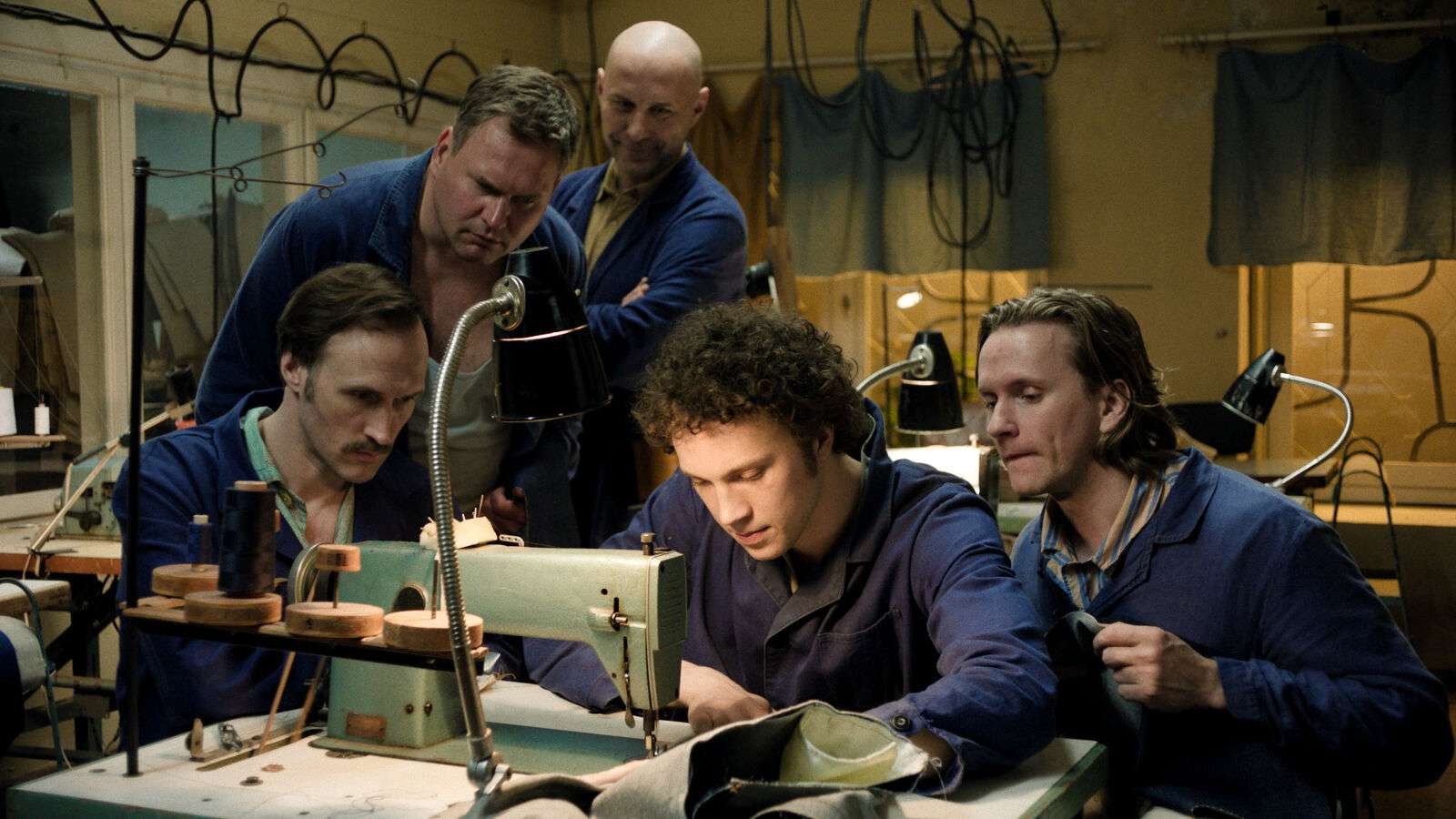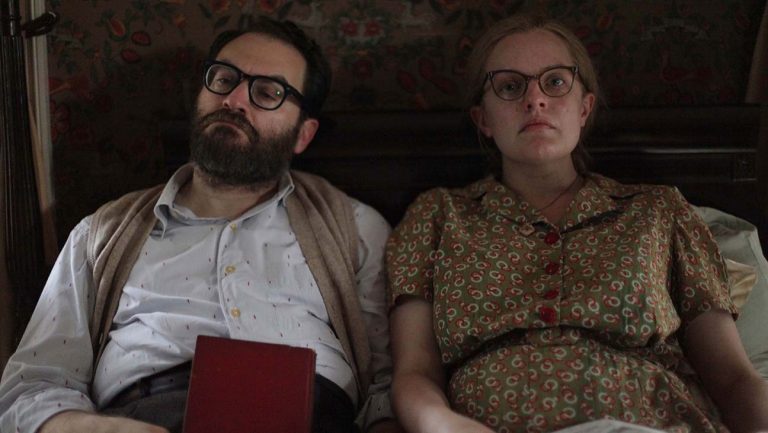“Soviet Jeans” is a series filled with extreme, prickly danger but has the lightest of footing. It situates itself in a grim time period. It is the 1970s, and Latvia is in the grip of a communist regime. The oppression is daily and unceasing. Paranoia and unpredictability abound. Nobody can be quite sure of their safe status. Anyone who tries to find individual ways of bending the system is nabbed, dumped in psychiatric hospitals, and slowly erased. In a world that is sharply split between America and the USSR, the slightest sign of Western influence in Soviet-held Latvia is perceived as the biggest threat to itself.
Renars (Kārlis Arnolds Avots) works as a tailor at a theatre in Riga. He also does seedy undercover operations to get clothes and accessories from foreigners. Such stuff is proscribed in Latvia, adding peril to his shady dealings. Constant vigilance of the KGB ensures he soon lands under the watchful gaze of an agent, Maris (Igors Selegovkis). Though they are on opposing ends, the two are bound by a hunger and ambition that drives them through the steepest of upsets. In exchange for not reporting him, Maris coerces him to be an informer for the KGB and gathers intelligence on the droves of foreigners that populate the theatre.
Renars somehow gets by on his routine without ruffling feathers. His grandmother, whom he lives with, has no idea about his secret business. While projecting to Maris he is actively snitching, he barely feeds him intelligence of any substance. Maris can sense this. He is miffed, and his drive for power and desperate need to be praised, validated, and promoted are impeded by Renars’ sly tricks.

The entire theatre premise is bugged, with the KGB intently snooping for the most minor of suspicious behavior, which they are capable of rewriting with more provocative design. Things seem to go by Renars’ expectations until he strikes a romance with a visiting Finnish director, Tina (a lovely Aamu Milnoff, bringing vibrant confidence), who is mounting a production based on Hamlet at the Riga theatre. She seems innocuous, but he detects trouble for her and warns her that her adaptation might be politically incendiary. Trouble does erupt; however, it arrives first for Renars.
Renars embodies a kind of radical optimism that is capable of elbowing its way out of pretty dire circumstances. He is a quick learner and even swifter at climbing the ladder. He’s not one to be so easily defeated. Having been in close proximity with his enemies has enabled him to pick up their ways of controlling situations and manipulating people to align them in his favor. An absolutely delightful and endearing Kārlis Arnolds Avots weaponizes Renars’ shrewd charm. Renars is silly and brash but also discerning beneath all the cheery-faced, gullible projection. Avots wonderfully builds on hints of that disarming potential. The scenes between him and Milnoff give a sweet breather in their texture of a fluttering romantic escapade.
In the series, people are constantly playing and tinkering with the system to make it suit their will. There are rigid hierarchies of power, where a thirst for laudation and recommendation is primed as an essential facet in serving the goal of the communist occupation. Created by Stanislavs Tokalovs, Teodora Markova, and Waldemar Kalinovskila, the series depicts a world plunged into deep precarity, venality, and rampant corruption, where everyone is seeking a sliver of self-worth, no matter if it is achieved through a corrosion of their humanity. Integrity has no meaning or purpose in it, repression the only pervasive norm.
Yet, no one seems oblivious to the systemic moral rot. They chip in to ensure their individual survival and the betterment of their prospects. These are weighty things the show delves into; however, in its decision to flash a swashbuckling energy, rarely does it feel bogged down by a dreary moroseness. People in the show are faced with an autocracy that operates by its own brutal whims. “Soviet Jeans” lends them enough savvy with which to ferret out snippets of joy and private rebellion from the system they’re trapped within.








![The Insult [2017]: Habitat International Film Festival Review](https://79468c92.delivery.rocketcdn.me/wp-content/uploads/2018/03/The-insult-2-768x432.jpg)